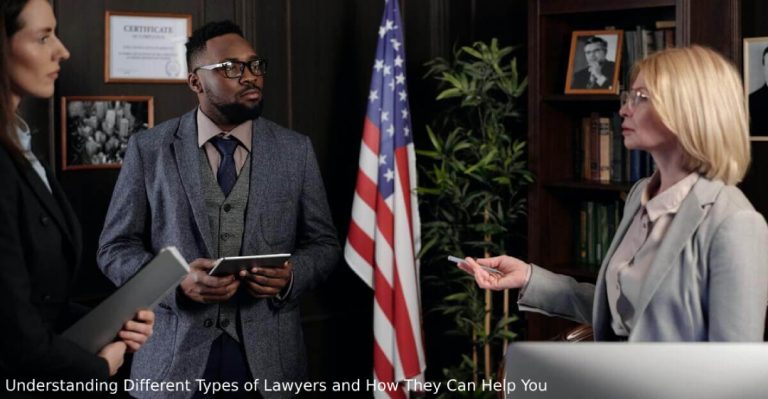How to Find a Government Licensing Attorney
In today’s complex legal landscape, navigating the world of licensing can be daunting for both individuals and businesses. Whether you’re looking to protect intellectual property, ensure compliance with regulatory standards, or draft agreements that secure your rights, a licensing law attorney is an essential ally. This post will guide you through understanding what a licensing law attorney does, why you might need one, and how to find the right professional online.
What Does a Licensing Law Attorney Do?
Licensing law encompasses a wide range of legal services focused on the granting, acquisition, and enforcement of licenses. These licenses could relate to intellectual property, business operations, broadcasting rights, software, or various other fields. Here’s a closer look at the primary roles and responsibilities of a licensing law attorney:
- Drafting and Reviewing Licensing Agreements:
- A licensing law attorney drafts, reviews, and negotiates licensing agreements to ensure that your rights are protected and that the terms are favorable to you. These agreements might involve patents, trademarks, copyrights, or trade secrets.
- Intellectual Property Protection:
- One of the most common areas of licensing law involves intellectual property (IP). A licensing attorney ensures that your intellectual property is adequately protected through proper licensing. They handle everything from the initial application process to enforcement actions if your IP is infringed upon.
- Compliance with Regulatory Standards:
- Many industries are subject to strict regulations, especially when it comes to licensing. Licensing attorneys help clients understand and comply with these regulations, avoiding legal pitfalls and penalties.
- Litigation and Dispute Resolution:
- If disputes arise over licensing agreements, licensing attorneys represent their clients in court or through alternative dispute resolution mechanisms such as arbitration or mediation. They aim to resolve conflicts efficiently while protecting their clients’ interests.
- Renewals and Termination of Licenses:
- Licensing attorneys assist with the renewal of licenses, ensuring that all necessary conditions are met. They also handle the termination of licenses, whether due to contract breaches or the expiration of terms.
- Negotiating Royalties and Fees:
- In the case of IP licensing, attorneys often help in negotiating the royalties and fees associated with the use of intellectual property. This ensures that clients are fairly compensated for their creations or inventions.
- International Licensing Issues:
- If your licensing needs cross borders, a licensing attorney can navigate the complexities of international law, ensuring that your agreements are enforceable and compliant with foreign legal systems.
Why You Might Need a Licensing Law Attorney
There are several scenarios in which you might need the services of a licensing law attorney:
- Starting a New Business: If your business model relies on the use of intellectual property or requires specific licenses to operate, a licensing attorney can help ensure everything is in order from the start.
- Expanding Your Business: If you’re looking to expand your business into new markets, a licensing attorney can assist with obtaining the necessary licenses and ensuring compliance with local regulations.
- Protecting Your Intellectual Property: If you’ve developed a new product, brand, or piece of software, a licensing attorney can help you protect it through proper licensing agreements.
- Entering into Licensing Agreements: Whether you’re the licensor or licensee, an attorney can ensure that the terms of the agreement are clear, fair, and enforceable.
- Resolving Licensing Disputes: If you’re involved in a dispute over a licensing agreement, a licensing attorney can represent your interests and work towards a resolution.
How to Find a Licensing Law Attorney Online
Finding a qualified licensing law attorney online involves several steps. The internet is a vast resource, but with so much information, it can be overwhelming. Here’s a step-by-step guide to help you locate the right legal professional:
- Start with a General Search:
- Use search engines like Google to start your search. Simple keywords like “licensing law attorney near me” or “intellectual property lawyer for licensing” can yield numerous results. However, the key is to sift through the options to find reputable professionals.
- Use Online Legal Directories:
- Websites like Avvo, FindLaw, and Justia provide comprehensive directories of lawyers categorized by their areas of expertise. You can filter your search by location, practice area, and even read reviews from previous clients.
- Avvo: Avvo rates attorneys based on their experience, reputation, and peer endorsements. It’s a great resource for finding a licensing law attorney with a high rating in your area.
- FindLaw: FindLaw allows you to search for attorneys based on their specialization and geographic location. It also offers legal articles and resources that can help you understand licensing law better.
- Justia: Justia provides detailed profiles of attorneys, including their education, experience, and client reviews. It’s another valuable tool for finding a qualified licensing law attorney.
- Check Professional Associations:
- Many licensing attorneys are members of professional organizations such as the American Intellectual Property Law Association (AIPLA) or the Licensing Executives Society (LES). These organizations often have directories or referral services that can help you find an attorney with specific expertise in licensing law.
- Review Attorney Websites:
- Once you have a list of potential attorneys, visit their websites to learn more about their practice areas, experience, and approach to licensing law. Look for attorneys who specialize in your specific needs, whether it’s IP licensing, software agreements, or business licenses.
- Read Client Reviews and Testimonials:
- Client reviews can provide valuable insight into an attorney’s reputation and track record. Websites like Google Reviews, Yelp, or even the attorney’s own website can offer testimonials that speak to their professionalism, communication, and success in handling licensing cases.
- Verify Credentials and Experience:
- It’s essential to verify the credentials of any attorney you’re considering. Check their education, bar association membership, and years of experience in licensing law. You can usually find this information on the attorney’s website or through state bar association directories.
- Consultation Process:
- Many attorneys offer a free or low-cost initial consultation. This meeting is an opportunity to discuss your licensing needs, ask questions, and assess whether the attorney is a good fit for your case. Prepare a list of questions about their experience, approach, and fees before the consultation.
- Consider Specialized Legal Services Platforms:
- Platforms like UpCounsel or LegalZoom can connect you with licensing law attorneys for specific tasks, such as drafting an agreement or providing legal advice. These platforms are particularly useful if you need legal assistance for a one-time project rather than ongoing representation.
- Evaluate Communication and Rapport:
- Your relationship with your attorney is crucial. During your consultation, evaluate how well the attorney listens to your concerns, explains legal concepts, and communicates overall. A good licensing attorney should make you feel comfortable and confident in their ability to handle your case.
- Compare Fees and Billing Structures:
- Licensing attorneys may charge by the hour, offer flat fees for specific services, or work on a retainer basis. Make sure you understand the attorney’s billing structure and get an estimate of the total costs involved in your case.
- Check for Conflicts of Interest:
- Before hiring an attorney, ensure there are no conflicts of interest. For example, if the attorney represents a competitor, it could create a conflict in handling your licensing matters. Ask the attorney directly about any potential conflicts during your consultation.
- Use Social Media and Professional Networks:
- Platforms like LinkedIn can be valuable for finding and connecting with licensing attorneys. Many professionals share their insights, articles, and case studies, giving you a better idea of their expertise. LinkedIn also allows you to see if you have mutual connections who can provide a recommendation.
Final Thoughts
Finding the right licensing law attorney is a crucial step in protecting your intellectual property, ensuring compliance with regulations, and securing favorable terms in licensing agreements. By following the steps outlined in this guide, you can confidently navigate the process of finding a qualified professional online.
Remember, the key is to take your time, conduct thorough research, and consult with multiple attorneys before making a decision. The right attorney will not only have the expertise you need but will also be a trusted advisor who can guide you through the complexities of licensing law.
Whether you’re a startup looking to protect a new invention, a business expanding into new markets, or an individual seeking to resolve a licensing dispute, a skilled licensing law attorney can make all the difference. Take the first step today by starting your search online and finding the legal support you need to succeed.


